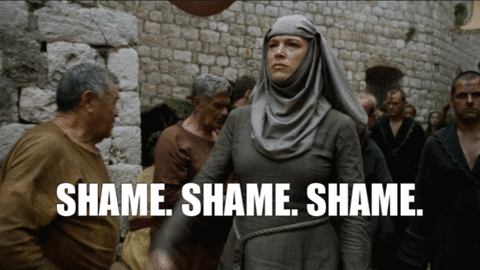It’s inevitable.
You must provide a frame in marketing. Take away framing, and maybe also scarcity and the ability to interrupt (ads), and we’d have a lot of trouble getting people to buy things.
Framing is where marketers earn their keep, creating biz value by connecting the dots in a user’s mind between your product and why they should care, given an understanding of a market and it’s concerns.
You frame yourself as an expert, a problem solver, someone with something your market wants. We call it positioning, but it’s the same thing.
You attempt to communicate value.
At first you communicate it as you perceive it, a rookie mistake.
You realize you’re just talking about how the sausage gets made. You’re grossing everyone out with your state of the art slaughterhouse plus high tech vertical stuffing process and proprietary high-nitrite curing methodology.
Meanwhile, people just want to see the spice flecks and hear it sizzle.
So you alter your frame from the value you provide as you see it, to the value as your target market perceives it. You replace ethically slaughtered, highly sanitary, scientifically processed industry lingo with the word, “spicy” in a millennial-friendly font.
The sausage doesn’t change. Just the way it’s presented changes, its frame.
Is that empathy or manipulation? idk.
Framing: the carrot and the stick
In Turning Pro, or maybe it was No One Wants to Read Your Sh*t, Steven Pressfield discusses ad concepts as creating value through messaging irrespective of actual product value. The example I instantly liked was for a teeth whitening product. It was, “if you’re not whitening, you’re yellowing.”
This is great because it has a carrot and stick component. It puts a stake in the ground, saying you’re either a dirty yellow toother or a smooth white toother. You can’t be neither, you are one or the other.
So you get the carrot of being on team white, and the stick of not being on team yellow.

I think the shaming part is when it gets hairy ethically. “You’ll love your white teeth” is a world apart from, “hey, use our product or have yellow teeth, loser.”
The moving target of ethics in marketing
I’m obsessed with the idea of ethical marketing. I’m not particularly ethical, just doing the best I can with what I have like we all are, but thinking about ethics in marketing can be powerful.
For one, it forces you to be more empathetic towards your audience.
For two, it’s an increasingly rare and valuable way to differentiate yourself, a lense with which to frame your offers. And it costs very little long-term (just your consideration).
For three, your frames add up to make your brand. You can’t position yourself one way and then hold up a frame that faces another way. The frames are the signals that make the patterns that determine, in large part, your positioning.
In that way, thinking about ethics when you’re framing can be a powerful guiding force. It helps you shrink the gap, real and perceived, between the promise of your offer and whether what’s delivered fulfills that promise.
And, the best part is, you don’t have to tell people they have yellow teeth just to get them to buy something.
